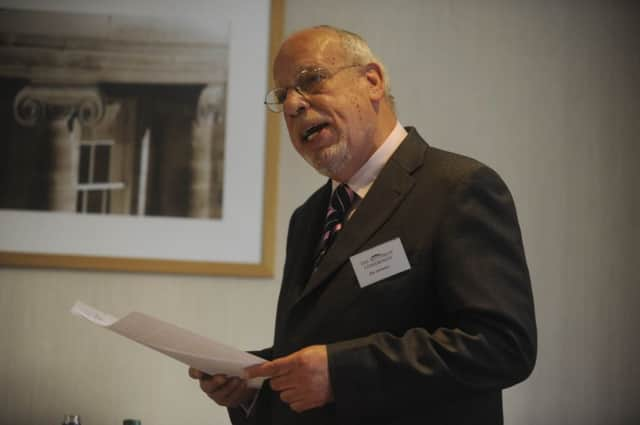Comment: No certainty of a FTSE high


Expect that upsurge to be a flood, for a breakthrough has been a long time coming – the previous FTSE 100 peak of 6,950 was established in December 1999.
Since then we have had the dotcom collapse, three prime ministers, two recessions, a massive financial crisis, major banking failures and now looming deflation.
Advertisement
Hide AdAdvertisement
Hide AdBut now the FTSE 100 has climbed to within a whisker of that previous peak. On Friday it closed at 6,853.44, having brushed 6,878 at one point on Friday.
So near – and not for the first time. It came close to smashing through to a new record in May of 2013, and then again in February, May, July and September last year before relapsing. Other world indices have made the breakthrough – in America the S&P 500 broke through to new high ground in December.
For those comforted by the last line of retreat of stockbrokers – that markets generally rise over the longer term – these 16 years will have been a slow awakening to the ultimate truth of markets: their unpredictability and capacity to disappoint.
So what has held the FTSE 100 back? For many long-in-the-tooth market watchers. The better question may be why it is as high as it is. We have had a bleak period of late for the FTSE 100’s most heavily represented sectors: mining companies, oil companies, food retailers and banks. These are the sectors most heavily represented in defensive, income orientated funds and their performance over the past 12 months has tended to lag the index.
Several factors have helped propel the market to its current level after the sharp retrenchment in the final quarter of last year. The collapse in the oil price, while dragging the oil sector lower, is seen as giving a boost to other sectors of the economy. Latest employment data and business surveys point to a recovery in both consumer spending and confidence after fears that we were heading for a slowdown in growth.
And deflation fears have worked to underpin equities. The yield on the broad FT All Share Index is 3.24 per cent, and on the FTSE 100 it stands at 3.39 per cent, compared with long dated UK government bonds yielding 2.33 per cent.
So why has the UK equity market been reluctant to break through to new high ground? First, many dividend payments in the oil and food retailing sectors are far from secure. Second, it can fairly be argued that the market is high enough as it is, with the main index on a price earnings multiple of 16.01. It would need a further resurgence in company earnings take the market significantly higher.
And then there is political risk, both overseas and at home. Deepening worries over Russia’s continuing military incursions into Ukraine could deeply unsettle Western markets should America opt to provide military assistance to Ukraine. In the Middle East there seems to be little sign of a halt to the insurgency of IS and Muslin fanaticism. And in the eurozone the stand-off between the new anti-austerity Greek government and Germany has reawakened the prospect of a Greek exit from the single currency.
Advertisement
Hide AdAdvertisement
Hide AdHere in the UK, with a general election less than 100 days away, the prevailing consensus is for a hung parliament, with the possibility of a minority Labour government propped up by SNP support. That prospect worries markets on two counts: first, a downgrading of measures to help bring down government deficit and debt and second, an anti-business agenda of regulation and tax rises.
A sustained FTSE 100 breakthrough to new high ground may well require both a containment of external shocks and a shift in perceptions about the outcome of the election. What would be the point, in any event, of a brief scaling of the FTSE 100 to a new peak, only to experience a relapse as investors doubted their own conviction?
Woodford’s new trust has many attractions
A GATHERING mood to break away from obsessive index-tracking may play well for star fund manager Neil Woodford’s new Patient Capital Trust focused on young, growth companies. And a positive attraction for retail investors is that it will not charge an annual management fee – a concern that has turned many away from active fund management.
His new fund will only charge investors in a year when they receive a positive return over a certain amount.
Three quarters of the trust will be invested in early stage, quoted and unquoted companies in the UK and US, which Woodford believes offer huge growth potential. The remaining 25 per cent will be invested in blue chip companies, dividends from which will subsidise the running of the fund.